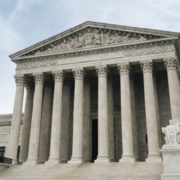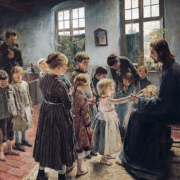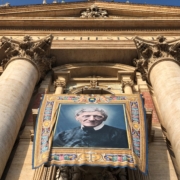With Second Miracle, Will Newman Be Canonized Soon?
Deo gratias! The Vatican reportedly has recognized a second miracle through the intercession of Blessed John Henry Newman, paving the way to a possible canonization next year.
Newman—a champion of both fidelity and reason, both of which are sorely lacking in the Church today—could be the perfect saint for our times!
In his sermon, “The Infidelity of the Future,” delivered to seminarians preparing for the priesthood, Newman seemed almost to foresee the great damage that scandals among our priests would cause the faithful, especially in a secular society that is eager to destroy religious faith altogether.
As Newman told the seminarians:
I think that the trials which lie before us are such as would appall and make dizzy even such courageous hearts as St. Athanasius, St. Gregory I, or St. Gregory VII. And they would confess that, dark as the prospect of their own day was to them severally, ours has a darkness different in kind from any that has been before it.
His concern?
The special peril of the time before us is the spread of that plague of infidelity, that the Apostles and our Lord Himself have predicted as the worst calamity of the last times of the Church. …I do not mean to presume to say that this is the last time, but that it has had the evil prerogative of being like that more terrible season, when it is said that the elect themselves will be in danger of falling away.
Already in the 19th century, Newman saw the radical turn against religion by intellectuals and social leaders. He expressed concern that Catholics “shall become more and more objects of distrust to the nation at large,” and perhaps “we may suffer disadvantages which have not weighed upon the Catholic Church since the age of Constantine.”
A special danger to the Church would be the sins of its priests.
With a whole population able to read, with cheap newspapers day by day conveying the news of every court, great and small to every home or even cottage, it is plain that we are at the mercy of even one unworthy member or false brother. …There is an immense store of curiosity directed upon us in this country, and in great measure an unkind, a malicious curiosity. If there ever was a time when one priest will be a spectacle to men and angels it is in the age now opening upon us.
How appropriate to these dark days of scandal, cover-up and denial, reaching to the very highest ranks of our priests and bishops!
But if Blessed Newman only foresaw the problems ahead, he would not be so important a model and sage for our present day, without also leading us to reform and renewal. This he did, especially in his devotion to faithful Catholic education—a key means of evangelization in a highly secular age.
In The Idea of a University and his other writings, Newman shows his conviction that authentic education ultimately leads one to the fount of Truth, the Creator, and therefore has the same object as theology in each of the ways it teaches knowledge.
Blessed Newman’s very first sermon in his university church in Dublin is particularly helpful. He recalled mankind’s creation, when by grace all the human faculties acted “in common towards one end.” But because of the fall of Adam and Eve, Newman argued, the young person has “all these separate powers warring in his own breast—appetite, passion, secular ambition, intellect, and conscience, and trying severally to get possession of him.”
The object of the Church in promoting Catholic education, then, “it is to reunite things which were in the beginning joined together by God, and have been put asunder by man.”
How much today has been put asunder, causing great confusion and even dissent among our young people?
Newman is often wrongly portrayed as emphasizing the intellectual purposes of education over the religious aspects. Quite the contrary, Newman viewed his role as rector of a Catholic university, above all, as a pastoral duty. He wrote in his journal this prayer for his students:
May I engage in them, remembering that I am a minister of Christ… remembering the worth of souls and that I shall have to answer for the opportunities given me of benefitting those who are under my care.
It is this sort of educator, this sort of education, this sort of pastoral care, that offers the promise of improving and correcting a society that neglects Truth and has turned against Faith.
Newman was certainly correct about the immense challenges facing the Church in a secular society. Nevertheless, he also knew how the battle ends. We know, too.
We look with hope to Blessed John Henry Newman’s eventual canonization, knowing that he can be a powerful patron for the renewal of Catholic education and the whole Church.
This article was first published at The National Catholic Register.

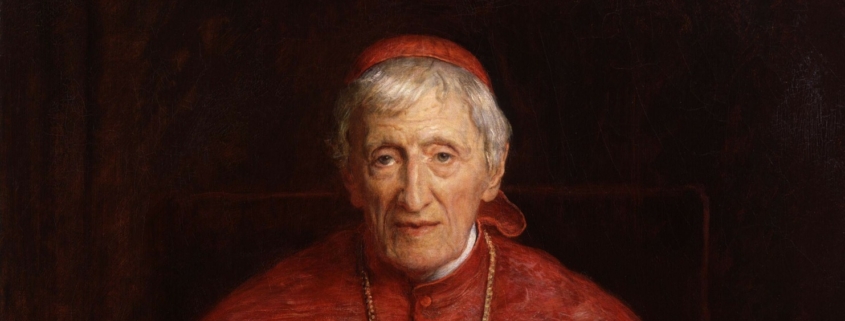


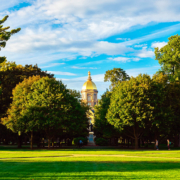 Photo by David Mark via Pixabay CC0
Photo by David Mark via Pixabay CC0 